
Physical activity is known to boost mental wellbeing, and in that regard it seems going for a simple walk is one of the best things you can do. In this series of articles we speak with people who have found walking an effective response to issues with mental health - this week Alex Staniforth, endurance adventurer, athlete, inspirational speaker and author.
Also see:
- Walking for Mental Health: The Thru Hiker, with Keith Foskett
- Walking for Mental Health: The Health Worker and ML, with Emma Holland
In 2017 Alex Staniforth became the fastest person ever to climb all 100 UK county tops, covering over 5000 miles in 72 days by bike, foot and kayak, and raising over £25,000 for Young Minds UK. He won the Pride of Britain Granada Reports Fundraiser of the Year 2017 for his efforts. Having suffered with mental ill-health himself, Alex, still just 22, has found a way to meet his inner difficulties by challenging himself in the outdoors, and through this he hopes to help empower others to overcome their own challenges too – to 'move their minds over mountains' as he puts it.
UKHillwalking: Do you mind telling us a bit about the sort of depression and anxiety you've struggled with, and how long it has affected you? How bad was life before you got into walking in a big way?
Alex: Anxiety has been with me since the age of 9 when I suffered a mild form of epilepsy. Although soon brought under control (and now seizure free) the experience of treatment was traumatic for someone so young and led to panic attacks and a fear of being away from home in case I had another seizure. After having one during a McDonalds meal even the smell of McDonalds could trigger a panic attack. Generally, anxiety made school a very unsettling experience. You get better at preventing panic attacks over time, but they never go completely.
I had my first 'proper' bout of depression aged 16 for 2-3 months. It passed once the Spring came and I started running more. Around Christmas 2012 the second bout was much worse, on the contrary triggered by an injury that put me out of running, cycling, everything for nearly a year. Losing that outlet was so frustrating that I lost control and sank, nearly pulled out of sixth form and developed an eating disorder as an extra coping mechanism. Since then, I've had a few episodes of depression which last a few weeks or months, and ongoing struggles with food. There were some frightening low parts that I've never shared but I do believe in being open – it's nothing to be ashamed of and being open takes power away from the stigma.
The endorphins and sense of achievement from exercise are a natural tonic to low mood and they also help to manage my eating disorder
What switched you onto walking, in particular, as a way to help address it? Did you already have some background in the outdoors or was this a new thing?
It started before the depression – at school I was hopeless at sport and had zero confidence. It was a freak moment on holiday when I decided to try paragliding that totally switched my mindset. The outdoors became my way to overcome internal challenges, discovering a confidence and passion I never knew I had, proving to myself what I could overcome. It was largely about 'mind over matter'; the mental resilience and strategies that outdoor challenges taught, which I could use to tackle the other daily challenges.
Like many, I started in the UK hills and walked Ben Nevis on a one-off family trip. That ultimately created a connection with the hills with a hunger for more and when I was invited to the Lake District with a friend (aged 14) I jumped at the chance. I've since become more of a runner than a walker. For me personally it's largely about the physical challenge and running in the hills has been a logical progression to give me a bigger challenge than hillwalking does. I don't think it matters whether you're running, walking or cycling – they all have similar benefits. Living near Chester, I'm lucky to be surrounded by countryside with Snowdonia and the Lake District both in reach.
Walking all 100 county high points of Britain in 72 days, your Climb the UK project, seems a very ambitious goal. Was there something about the scale of that challenge that specifically appealed to you? Setting yourself such a big task, and then seeing it through to a successful conclusion has to be good for self-esteem and confidence, doesn't it?
It had appeal for lots of reasons. My second attempt to summit Mount Everest had ended in disaster with the 2015 Nepal earthquake. To be honest, Everest and the Himalayas weren't really me. I was trying to be something I wasn't. But what survived from the Everest dream was the power of helping others, and I realised that doing something closer to home would give people the chance to be part of it, which made it so much more fulfilling than being sat alone in a tent half way across the world. Unlike the altitude stuff, Climb The UK had few external factors like avalanches or Sherpa strikes. My aim was to have something that I could feel proud of and would make a bigger difference. When I reached the final summit (Moel Famau) it felt like the Everest summit day I never had; the first time I'd truly achieved what I'd set out to do, and largely down to my own willpower. It's a huge boost and a powerful weapon against negative emotions and self-criticism. The elation does wear off after a while but it's better than not having it at all.
It seems unlikely that anyone suffering mental ill health would go off on one big trip and come back fully recovered: is this more an ongoing process for you?
Yes absolutely. If only it was possible to go off on these things and return 'cured'. The trips build our resilience and help us find purpose over time which helps manage the troughs. Expecting some sort of miracle only sets us up for disappointment when life has natural peaks and troughs regardless of the picture painted by society. Maybe that's why we keep doing more and more challenges, because nothing quite feels enough – it's like caffeine, after a while you need a bigger dose to get the same kick. It's important not to get stuck in this cycle of continuously pushing the boundaries as that might just be distracting us from the underlying problem, and eventually we'll run out of ground. I think mental illness never truly goes away, but the outdoor trips can fill needs that might be unmet.
Exercise at the gym might give accessible endorphins when we don't have time for a decent walk, but can get repetitive, whilst no day in the outdoors is the same
Aside from big trips, which can only ever be occasional, do you go out walking on a more regular, smaller scale basis? What role does it play for you in ongoing self-maintenance (for want of a better term)?
That's a reality for most professional adventurers – we spend very little time on large projects, and most of the time planning, writing, talking and sharing them on social media! As mentioned above since Everest I've become more of a runner than a walker. I run six days a week on average but enjoy rest days too. Exercise keeps you accountable, and sometimes having a race or a training plan has given me a reason to go outside when I might otherwise have mulled at home all day. The endorphins and sense of achievement from exercise are a natural tonic to low mood and they also help to manage my eating disorder which is tied up in weight gain. The feel-good chemicals we get from exercise somehow help everything to feel a bit more right. We can try to explain and justify it but frankly it feels good, that's why we do it! Of course, there's no instant cure and the risk is that we are vulnerable if unable to get out (i.e. due to injury).
Anecdotally, many people seem to find walking beneficial to mental as well as physical wellbeing. I guess the benefit takes various forms. We've touched on the positive physiological effects... but there must be more to it than that, or we'd all be happy simply walking on treadmills at the gym. There have to be more subjective things going on too - the psychological release of taking a step away for the daily grind maybe, or the way that immersing yourself in an aesthetic experience such as hillwalking seems positive and enriching in itself. In your experience, what does going out for a walk in nature give you beyond the more prosaic benefit you might find in spending hours on an exercise bike?
The phrase "type 2 fun" springs to mind. Personally, I'd be bored out of my mind in a gym, and for someone struggling with motivation, it's the last thing I'd suggest! Exercise at home/the gym might give accessible endorphins when we don't have time for a decent walk, but can get repetitive, whilst no day in the outdoors is the same.
I think being outdoors is more about mental resilience gained. Bad weather can put us out of our comfort zones, but the more we suffer, the more rewarding it seems. During Climb The UK I ran out of ways to say 'that was the worst day of my life' after running across Cairngorm plateaus in driving rain. But ultimately it raises your mental threshold to difficult situations. After expeditions I've become much more laid back and the usual gripes – from buses being late to someone cutting you up on the road – don't bother you much. You become less vulnerable to everyday life. Unlike the gym, being in nature takes you to new places, new experiences and there's something naturally poignant about seeing your target and climbing it.
Everyone has something they're dealing with, but using mountains we can change our mindsets to respond more positively
Do you walk to escape, or to find something?
I think it's more about distracting ourselves from a problem and coming back to it with a different perspective by changing our environment, which ultimately finds an answer. Like many people I have often gone into the hills when trying to solve a dilemma. I believe depression has a lot to do with one or more human needs not being met. The problem may still be there when you get back but having a few hours respite might be all that's needed to make it seem manageable.
Do you prefer to walk solo, as a contemplative introspective thing, or being in a group and having that more sociable experience?
Being honest, I usually prefer being alone. With stammering/low confidence as a child I've always been very independent and struggled with socialising. The outdoors is a personal thing – just me vs nature. In the outdoors I'm limited by myself only, where nobody could let me down, and so the achievements feel genuine. But walking with company can also be rewarding. Chatting can pass the time on longer walks and sometimes it's nice to take it easy instead of racing the clock. I love taking people out on their first hill, at their own pace, and without people joining me on Climb The UK I guarantee I wouldn't have finished. I think it depends on your individual aim. That's the beauty of being outdoors – we attach our own meaning and purpose.
Let's say you're having a tough time at home and decide to head for the hills. Can you describe the psychological process of going for a walk: what changes in yourself and your mood do you experience as you go through the day?
As above I would probably go for a run as that's more practical than a three-hour journey to the mountains. Many walkers would relate to the hardest part being the start – the planning, the packing and getting yourself out when the forecast or other things may provide excuses. Once you start walking there's a sense of relief. Maybe dread when you see how far you have to go (why does it always look further away?!) and sometimes negative thoughts creep in. Once you reach the objective it seems to shift to gratitude that you made the effort. Any surprises along the way add a sense of fulfilment and a buzz follows you home. If it's a tough day I look forward to the finish and plan an incentive, whether that's a big dinner or even the simple comfort of being content, warm and dry. The enjoyment often seems to come afterwards mostly.
Being out in nature, concentrating on the moment, meeting the basic demands of weather, navigation, staying safe and comfortable - going out on a walk, particularly a long one, seems to strip away the unnecessary and focus you in on these simple essentials. Is that part of the appeal, for you, and if so can you explain why?
Partially. I think that's why practical activities are recommended within Cognitive Behavioural Therapy as it's much harder to be distracted by negative thoughts than something passive, like reading, for example - they require a large amount of focus. In todays' modern world we rarely get chance to stop and look inwards. Walking in nature we have a chance to escape the Wi-Fi, expectations from others, and it clears a lot of mental noise that stops us seeing 'the wood for the trees'.
Out on the hills you are a small human in a very big world. Do you find that helps you put worries in their proper place and see the big picture more clearly?
Probably, the sheer size of the landscapes strips away these artificial material things and filters out what really matters – we're able to recognise that we may have been worrying about something that really wasn't as bad as we thought. I fondly remember one walk in the Glyders with friends during my first bout of depression - it was one of those magic blue-sky days where it was nearly impossible to feel bad in a place of such beauty. Nature gives you lots of things to be positive about, even when depression can block it out.
Why is it important to you not only to walk and run for your own benefit, but to give something back by encouraging others to get out there too?
Medication is the typical response to depression and mental health challenges, but I believe that medication only deals with the symptoms – being outdoors can help deal with the causes. For many people I believe we could intervene and prevent the need to start popping pills by having more regular outdoor exercise in the first place. After NHS therapy and taking medication myself I'm yet to find anything as effective as outdoor physical activity. Used together, they could be very effective. The challenge is motivating people to take part when already suffering low motivation.
During Climb The UK I had over 150 people joining me; some achieving their first mountain, furthest walk, etc, which was eye opening for me and I wanted to continue this. I feel strongly about giving others the chance to experience that process and something potentially life-changing. Fundraising for charities is important but creating experiences lasts much longer. And of course, it's very hard to feel bad when we help others.
In May you took part in hosting Mind Over Mountains, a Lake District walking weekend that aimed to promote the benefits of UK mountains for mental and physical health. How did that go?
The event went really well and places sold out. I think everyone took a lot away from it. Mind Over Mountains was much more than just an outdoor weekend as it combined other elements like NLP to compliment the walks and help people make the connection. Everyone has something they're dealing with but using mountains we can change our mindsets to respond more positively.
I want to make Mind Over Mountains a longer-term charitable project and I'm currently planning how this will work. Future events will definitely follow, and people can stay updated on that on social media:
- Website - www.alexstaniforth.com
- Twitter - @alex_staniforth
- FB - www.facebook.com/AlexAdversity
- Insta - @alexstaniforth_
Been up to much recently?
I'm currently working on my next book, which will tell the story of Climb the UK but in a practical way that focuses on the mental health journey behind it.
I've also just taken part in the The Billy Bland Challenge. It's a 66-mile, 42-peak relay based on the five legs of the 24 Hour Bob Graham round, starting and finishing at the Moot Hall in Keswick. We did it in 15 hours 42 mins last Thursday - apparently the third fastest mixed team ever. Luckily, Rhys and myself only had to run the final leg 5 (ten miles) when the heat had dropped. We finished with 70 secs spare - just before the Fish & Chip shop closed. Win!
I loved being part of the YHA England and Wales team raising money for young people in challenging situations. Please do consider kindly donating a few £ for our efforts if you can - thanks! www.justgiving.com/fundraising/yha-fell-team
- Book Extract: Another Peak by Alex Staniforth 10 Oct, 2019

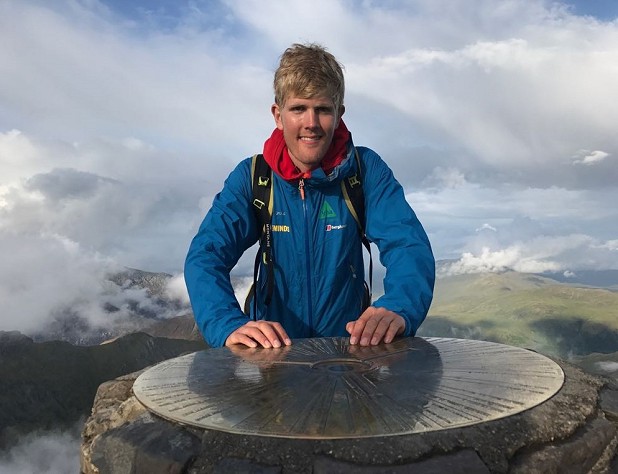
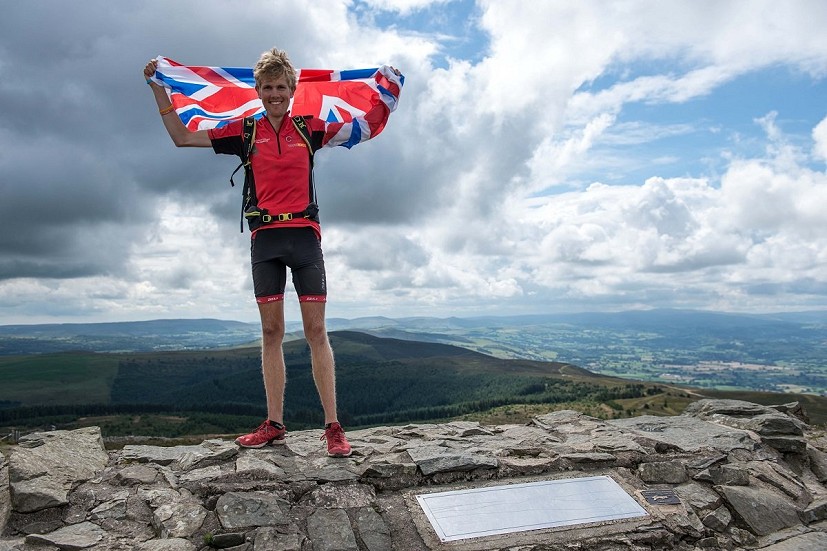
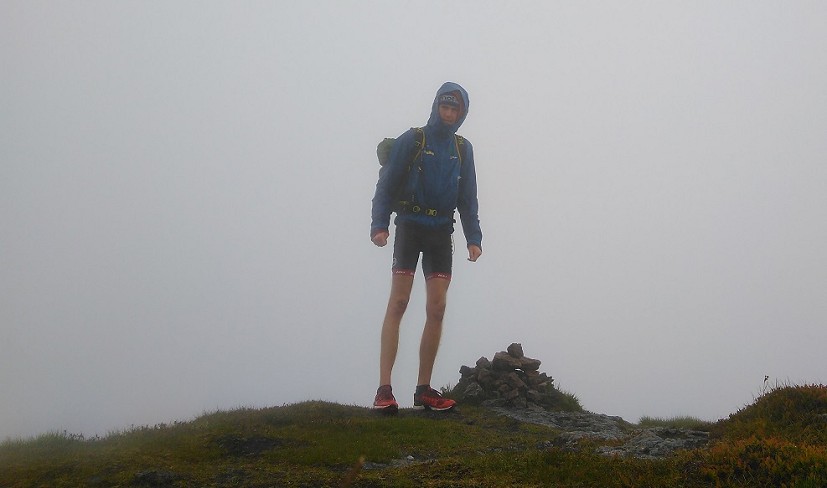
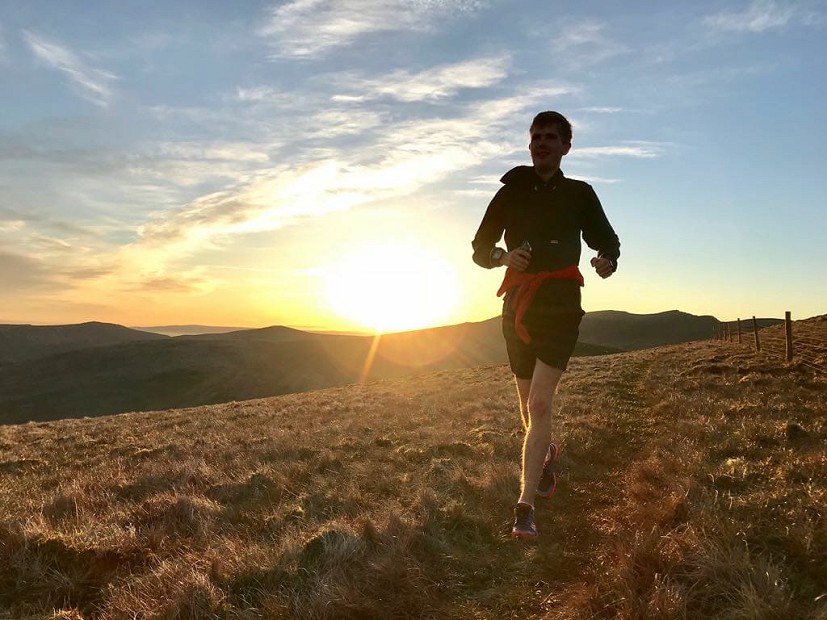
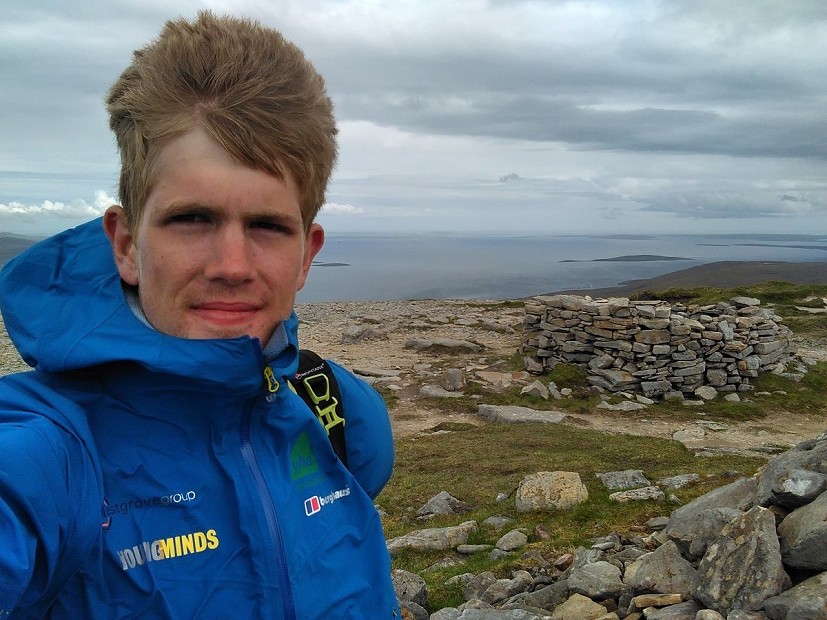
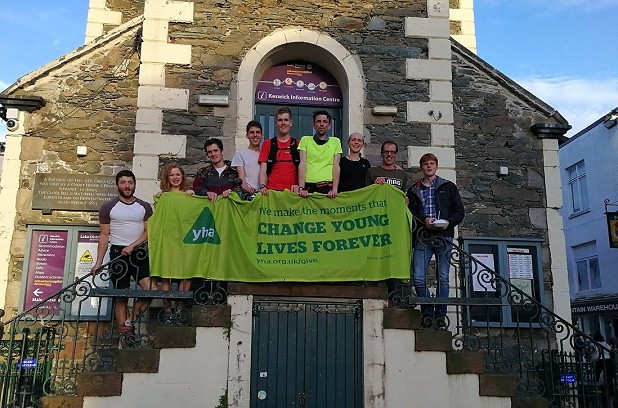

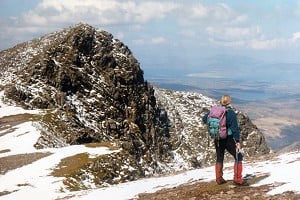

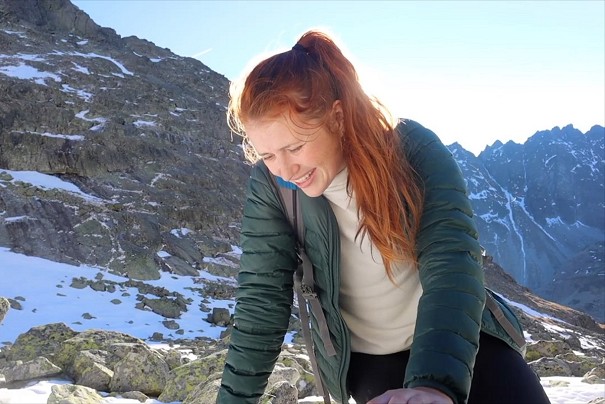
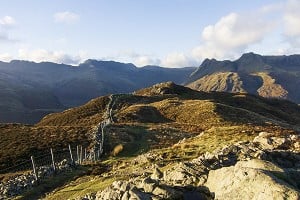
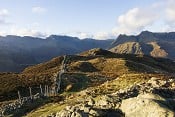
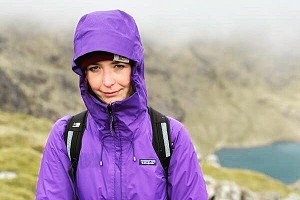
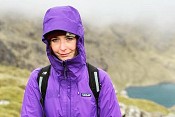
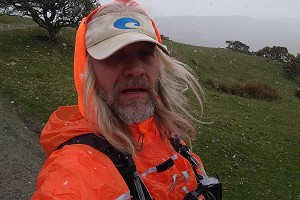
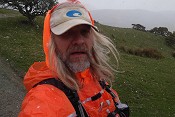
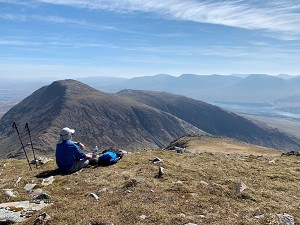
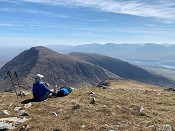


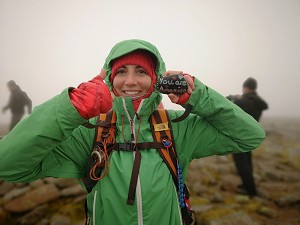
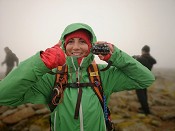
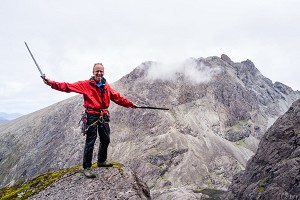

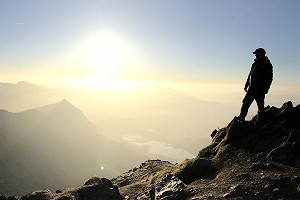

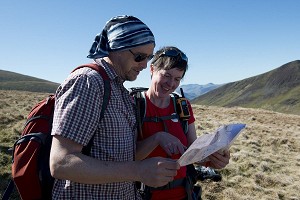
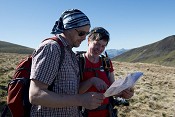
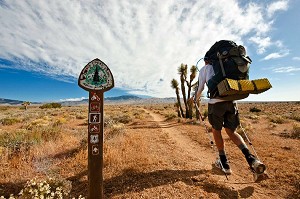
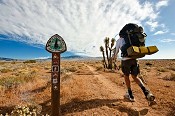
Comments